| Article ID | Journal | Published Year | Pages | File Type |
|---|---|---|---|---|
| 2010944 | Pharmacological Reports | 2012 | 9 Pages |
BackgroundRestoration of impaired immune response in immunocompromised patients is a crucial problem. In this study we evaluated the efficacy of isoxazole R-11 in reconstitution of the immune response in immunosuppressed mice.MethodsMice were given a sublethal dose (250 mg/kg b.w.) of cyclophosphamide (CP). The cellular immune response to ovalbumin (OVA) and the humoral immune response to sheep erythrocytes (SRBC) were generated. R-11 was administered at repetitive, intraperitoneal doses (20 μg/mouse) until determination of the immune responses: 7 and 15 doses on alternate days for cellular and humoral immune response, respectively. For phenotypic studies R-11 was given per os, at a single dose of 20 μg/mouse. The ability of R-11 to affect interleukin- 6 (IL-6) production was determined in the whole human blood cell culture.ResultsR-11 increased the content of CD19+ cells in the spleens and lymph nodes with a concomitant decrease of CD3+ and CD4+cells. The compound significantly accelerated restoration of both cellular and humoral immune responses, elevated the numbers of circulating leukocytes and splenocytes and normalized the blood cell picture. Supplementary experiments showed that R-11 was not toxic with regard to human peripheral blood mononuclear cells (PBMC) and that it upregulated IL-6 production in blood cell culture stimulated with lipopolysaccharide (LPS).ConclusionsWe demonstrated that R-11 is likely a B-cell tropic agent which can restore both cellular and humoral immune responses in immunocompromised mice and may have a potential to be applied in therapy of immunocompromised patients.
